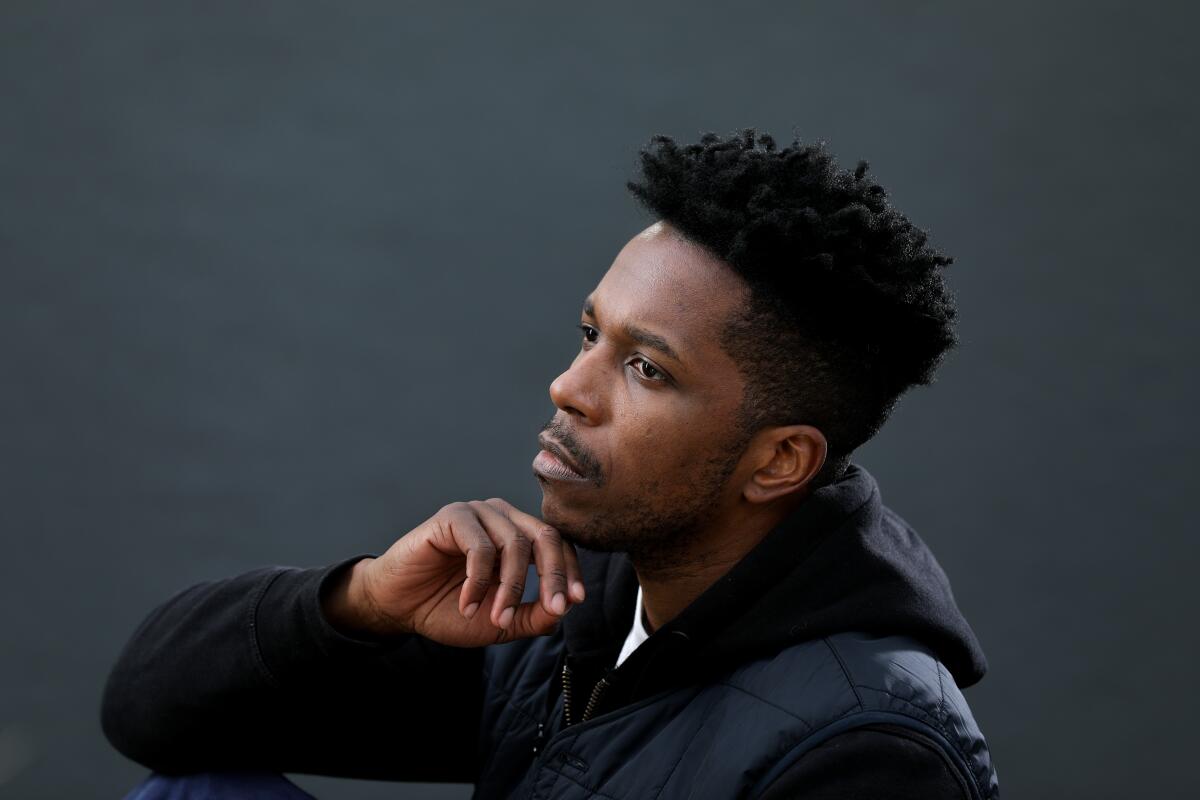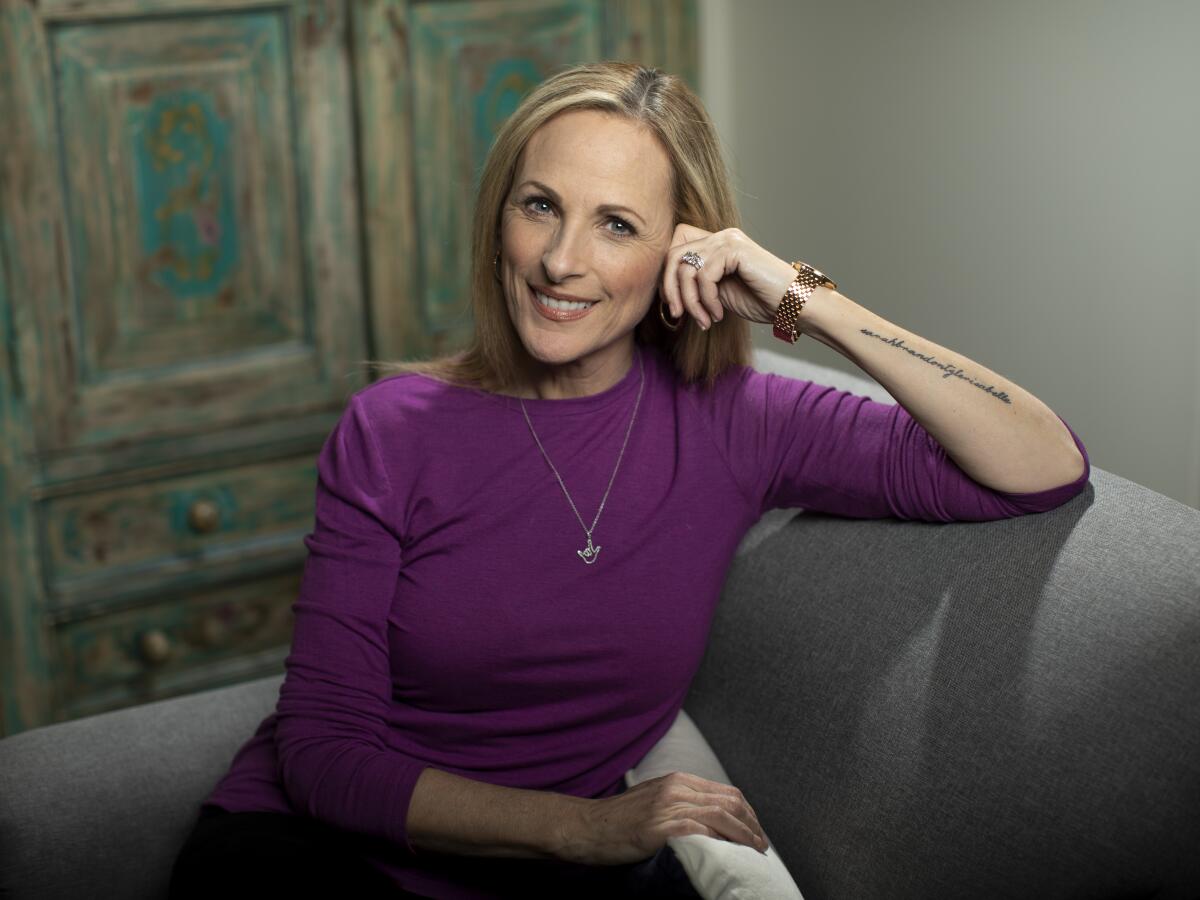How Leslie Odom Jr. could earn two Oscar nominations

OK, campers. Rise and shine. And don’t forget your booties because it’s cold out there. Well ... cold for SoCal. But the good news? Tomatomania is around the corner! And thanks to Reddit, I’m flush with funds to buy all the varieties I want this year.
From the Oscars to the Emmys.
Get our revamped Envelope newsletter for exclusive awards-season coverage, behind-the-scenes insights and columnist Glenn Whipp’s commentary.
You may occasionally receive promotional content from the Los Angeles Times.
Also: The Oscars are about three months away.
I’m Glenn Whipp, awards columnist for the Los Angeles Times and host of the Envelope’s Friday newsletter. Welcome to this week’s edition, which I’m sending out to all the people with the hedges (and the hedge-less hordes too).
How many Oscar nominations for Leslie Odom Jr.?
Leslie Odom Jr. passed on playing Sam Cooke in “One Night in Miami” the first time Regina King offered him the role. No disrespect, he thought, but a movie depicting an imagined conversation among four iconic Black men — Cooke, Malcolm X, Muhammad Ali and Jim Brown — felt as if it could go sideways in a second. Plus, there wasn’t much time to prepare. There would be no rehearsal. Too nerve-racking. And you want me to sing “A Change Is Gonna Come” in the final scene of the movie? No thank you.
But — and Odom says this never happens — the actor’s agent and manager asked him to take another look at Kemp Powers’ screenplay, which he adapted from his own play. And when he did, Odom moved past the fear and started digging into the ideas being expressed, the boundaries being pushed. And he understood that “One Night in Miami” went beyond a standard biopic, making a private conversation public and exploring Black humanity in a way that felt groundbreaking.
“Giving these men the dignity of Black humanity, that felt audacious,” Odom told me in a recent interview.
Odom could earn two Oscar nominations for “One Night in Miami” — for supporting actor and for the song, “Speak Now,” (an “offering,” Odom calls it) he cowrote with Sam Ashworth that plays over the movie’s closing credits. As the title suggests, it’s a call to action, an appeal for community. “I swear we’ll never find a way to where we’re going, all alone / Don’t take your eyes off the road.”
And if that’s not enough, Odom could find himself nominated for multiple Golden Globes too, as the filmed performance of “Hamilton” is eligible.
You want Oscar predictions? Here you go.
It wasn’t that long ago when you could watch the Oscars, see what movie won the award for cinematography and think, “OK. That might be the best picture winner too.” In the ‘90s, the two awards went hand in hand six times. “Dances With Wolves,” “Schindler’s List,” “Braveheart,” “The English Patient,” “Titanic” and “American Beauty” all pulled off the feat. In the ensuing two decades, it has happened just twice — “Slumdog Millionaire” and “Birdman.”
Instead, the correlation now comes between director and cinematographer. Alfonso Cuarón won both Oscars for “Roma.” Two years before that, “La La Land” swept the two honors. “The Revenant,” “Birdman,” “Gravity” and “Life of Pi” also won both.
This year, it’s possible we’ll again see the director-cinematography connection. “Nomadland” filmmaker Chloé Zhao has been piling up critics honors, winning director honors from the Los Angeles and New York groups among many others. And since Zhao and cinematographer Joshua James Richards shot much of the movie during the “magic hour” of dusk when the sun hits the horizon and makes everything glow just right, “Nomadland” could well win the cinematography Oscar too. This is an unbelievably gorgeous movie, and it lets its audience just bathe in that imagery.
Recently, I took an early look at the director and cinematography Oscar races, as well as the song, score and animated feature categories, where Pixar’s “Soul” should do nicely.
Enjoying this newsletter? Consider subscribing to the Los Angeles Times
Your support helps us deliver the news that matters most. Become a subscriber.
Sundance goes virtual; ‘CODA’ opens with a splash
This year you can attend Sundance from the comfort our your living room sofa. The Times’ film staff picked 24 movies that are worth checking out, and I interviewed the great Marlee Matlin, who stars in one of those films, “CODA,” which opened the festival last night.

Written and directed by Siân Heder, “CODA” (child of deaf adults) follows Ruby (Emilia Jones), the only hearing member of a deaf family who, at 17, dreams of going away to college and pursuing her passion for singing. But she’s torn. Her family runs a fishing business and depends on Ruby to navigate the world outside the home.
All of the deaf characters — Ruby’s father, Frank (Troy Kotsur); mother, Jackie (Matlin); and brother, Leo (Daniel Durant) — are portrayed by deaf actors, and American Sign Language is subtitled, rather than verbalized by another character, highlighting its vibrancy as a form of communication.
Matlin was the first actor to join “CODA” and stuck with Heder through a development process that had financiers balking at casting deaf actors in lead roles. Finally, Matlin issued an ultimatum: Hire deaf actors or I’m out.
“For the first time in a long time ... in fact, for the first time since my first film (‘Children of a Lesser God’), I felt that audiences would really see deaf people in a film,” Matlin says of her “obsession” with getting “CODA” made. “There are so many levels for people to identify with and, for people with no connection, who have never met a deaf person, to see sign language, to see deaf people in normal, day-to-day settings. ... People think that deaf people are monolithic in terms of how they approach life. And this film bursts that myth.”
Thank you, Cicely Tyson
When I attended the Governors Awards two years ago, everyone in the room wanted to pay their respects to Cicely Tyson, who died Thursday. The queue of well-wishers surrounding her table at the Ray Dolby Ballroom spilled across the length of the room.
When Tyson took the stage, following introductions from Tyler Perry, Quincy Jones and Ava DuVernay (again: Everyone wanted to pay tribute), she delivered the night’s most emotional speech, noting that when then-academy president John Bailey called to tell her she would receive the honor, “I just went to water. I could not say a word. I call it Niagara Falls. All I did was cry and cry and cry.”
Tyson, Oscar-nominated for her role in the 1972 drama “Sounder,” thanked Oprah Winfrey and Whoopi Goldberg before looking skyward and addressing her mother.
“Mom, I know you didn’t want me to do this, but I did,” she said, holding the Oscar aloft. “And here it is. For the longest time, I wanted to hear something positive from her. When I did ‘[The Autobiography of Miss] Jane Pittman’ ... she said, ‘I am so proud of you.’ And I think if I had not heard those words from her, none of this would make a difference to me.”
Tyson was a pioneer and an icon. Rest in power, dear lady.
Feedback?
I’d love to hear from you. Email me at [email protected].
Can’t get enough about awards season? Follow me at @glennwhipp on Twitter.
From the Oscars to the Emmys.
Get the Envelope newsletter for exclusive awards season coverage, behind-the-scenes stories from the Envelope podcast and columnist Glenn Whipp’s must-read analysis.
You may occasionally receive promotional content from the Los Angeles Times.




